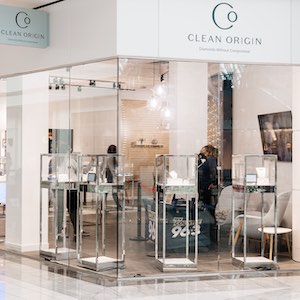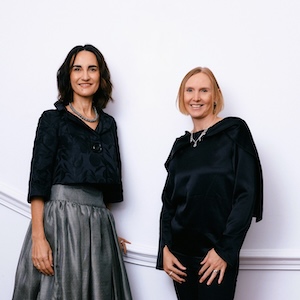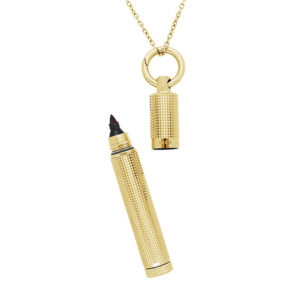
It’s not surprising that a company named Clean Origin—the lab-grown diamond site that was sold last month—had a carefully crafted origin story, and Alexander Weindling delighted in recounting his.
Weindling, Clean Origin’s CEO and co-founder, told Forbes he was “trained in diamonds since I was in diapers.” His family owned De Beers sightholder London Star, where Weindling worked until his family’s partners bought them out in 1996. He later founded Weindling International, a manufacturer that merged with two Indian sightholders in 2004. Three years later, he started another company—A. G. Weindling—which developed the metal platinaire. In the 2010s, he had relatively short stints working for different businesses—Georg Jensen, Lia Sophia, and World Business Lenders.
After that, Weindling told Forbes he was “done” with the diamond business, and aspired to become a “private equity hack,” until he became excited by the potential of lab-grown.
“This was a chance—and I really mean this—to be on a right side of history,” Weindling told JCK in 2019.
In 2017, he co-founded Clean Origin with Ryan Bonifacino, the former chief marketing officer of Alex and Ani. Its first filings listed Weindling’s home as its corporate address. And while Clean Origin was not the first site to sell lab diamonds online, it was among the first to sell only lab-grown. It scored an early coup by recruiting Terry Burman—the revered former CEO of Signet Jewelers—as both an investor and an advisory board member. (“That was like Obi-Wan Kenobi saying, ‘I want on your Millennium Falcon, Mr. Solo,’ ” Weindling said in the 2019 interview. “That was a great honor.”) It advertised heavily and its ads received strong click-through. At one point, it was valued at over $100 million.
“We are the only online house that has a third-generation diamantaire that’s driving sourcing and operations,” Weindling said in 2019. “I know this business cold. I’ve known most of the producers for 30 years.
“We are talking to a new generation. Bob Dylan was the spokesperson of [the boomer] generation. For them, it’s Kendrick Lamar. This is the Kendrick Lamar brand. This speaks to people who Kendrick Lamar speaks to, which is basically people in their twenties, who have a real concern and empathy for the planet. This generation is walking the talk.”
But in the end, Clean Origin fell victim to the same problems that have afflicted other jewelry e-tailers: It was selling a commodity product in a competitive market. While its pitch was aimed at socially conscious consumers—and it leaned heavily on the (debatable) notion that lab-grown diamonds are eco-friendly—its offerings didn’t appear any different from any other lab-grown sellers’, sustainability-wise.
In the 2019 interview, Weindling expressed skepticism that his consumers cared where its diamonds were grown, or who produced them.
“What does the name ‘Clean Origin’ say?” he asked. “It means ‘lab-grown.’ That’s the origin that matters to [the younger] generation.” (Clean Origin’s patent application puts it differently; it says “Clean Origin” means “sources free of moral corruption.”)
The brand did try to distinguish itself in other ways. In 2019, it launched a second, more upscale site, Great Heights, spearheaded by Bonifacino. “Great Heights will be the main focus of the team,” Bonifacino told JCK shortly before it launched.
Eventually, though, the company decided to focus on the more price-oriented Clean Origin (though Great Heights remained the name of its parent company). Like many jewelry companies, Clean Origin grew wildly during COVID-19, with revenues rising from $11 million in 2019 to $16 million in 2020 to $25 million in 2021.
In 2022, India’s Titan Group invested $20 million in Great Heights, Inc. A release said Titan sought “a ringside view of the fast-growing lab-grown diamond and direct-to-consumer sectors.” Post-investment, the site was valued at over $150 million.
In fact, the lab-grown sector was growing so fast, it had become a lot more competitive. Clean Origin was now one of dozens of sites selling lab diamonds—and some of them had far better-known names, and far bigger budgets. Brilliant Earth, a major player in lab-grown, spent $50 million on marketing in 2020, more than double Clean Origin’s sales for that year. In 2019, Signet-owned e-tailer James Allen started stocking lab-grown, and in 2021, Blue Nile—post-Signet purchase—began carrying it, too. Price competition online grew fierce as lab-grown prices sank lower and lower, and the increased competition led to high rates on the two main digital advertising vehicles—Google and Facebook.
The mounting costs of digital advertising have led many “pure play” e-tailers to embrace brick-and-mortar. Clean Origin did as well, opening its first store in 2021. By the time it was sold, it had opened six. But running stores also incurs considerable costs—including leases and employees.
By 2023, the pandemic was over, and the great jewelry boom had cooled. That year, the company phased out the Great Heights site. Bonifacino took on different consulting and marketing roles; he’s currently chief marketing officer for ShiftKey, a health care company. And while Bonifacino has been called Clean Origin’s co-founder, the site is notably absent from his LinkedIn page.
Last October, Kliger-Weiss Infosystems, a hardware provider, sued Clean Origin in New York State Court, claiming it was owed $354,000. (The suit was eventually discontinued.) And this week, Media Bridge Capital Services, a media agency, launched its own legal action against Clean Origin, also claiming it’s owed funds. (The two parties’ contract said the agency would be awarded equity in the company based on performance.)
On a May 2024 conference call, Ajoy Chawla, the CEO of Titan’s jewelry division—and a member of Great Heights’ board—said that Clean Origin’s business “has been linked to what is happening in the U.S., [where] there has been significant stress in the market, both for natural and for lab-grown, largely on account of intense competitive pressures at their end and falling average order values because of the drop in prices of lab-grown linked to the supply glut of lab-grown.”
On that same call, Titan CEO Ashok Sonthalia noted that it had taken a 30% impairment on its investment in Clean Origin.
“They are a very, very small player,” he said. “And so they are under pressure quite a bit.”
Three months later, Grown Brilliance bought Clean Origin. Titan has called its $20 million investment in Great Heights “fully impaired,” meaning it has been written down to zero.
Clean Origin’s site remains up, but it’s now part of Grown Brilliance, which has also purchased another lab-grown company, Aether. Grown Brilliance has a vertically integrated model and owns over 250 growers. Its CEO, Tejas Shah, says the lab-grown industry should expect more consolidation in the future.
Weindling and Bonifacino did not return requests for comment.
Photo courtesy of Clean Origin
- Subscribe to the JCK News Daily
- Subscribe to the JCK Special Report
- Follow JCK on Instagram: @jckmagazine
- Follow JCK on X: @jckmagazine
- Follow JCK on Facebook: @jckmagazine







